The Micius satellite has enabled messages with unbreakable encryption to be sent 1,200km.


Researchers at Empa and EPFL have created one of the smallest motors ever made. It’s composed of just 16 atoms, and at that tiny size it seems to function right on the boundary between classical physics and the spooky quantum realm.
Like its macroscopic counterparts, this mini motor is made up of a moving part (the rotor) and a fixed part (the stator). The stator in this case is a cluster of six palladium atoms and six gallium atoms arranged in a rough triangular shape. Meanwhile, the rotor is a four-atom acetylene molecule, which rotates on the surface of the stator. The whole machine measures less than a nanometer wide.
The molecular motor can be powered by either thermal or electrical energy, although the latter was found to be much more useful. At room temperature, for example, the rotor was found to rotate back and forth at random. But when an electric current was applied using an electron scanning microscope, the rotor would spin in one direction with a 99-percent stability.
A research team from Empa and EPFL has developed a molecular motor which consists of only 16 atoms and rotates reliably in one direction. It could allow energy harvesting at the atomic level. The special feature of the motor is that it moves exactly at the boundary between classical motion and quantum tunneling — and has revealed puzzling phenomena to researchers in the quantum realm.
The smallest motor in the world—consisting of just 16 atoms: this was developed by a team of researchers from Empa and EPFL. “This brings us close to the ultimate size limit for molecular motors,” explains Oliver Gröning, head of the Functional Surfaces Research Group at Empa. The motor measures less than one nanometer—in other words it is around 100,000 times smaller than the diameter of a human hair.
In principle, a molecular machine functions in a similar way to its counterpart in the macro world: it converts energy into a directed movement. Such molecular motors also exist in nature—for example in the form of myosins. Myosins are motor proteins that play an important role in living organisms in the contraction of muscles and the transport of other molecules between cells.
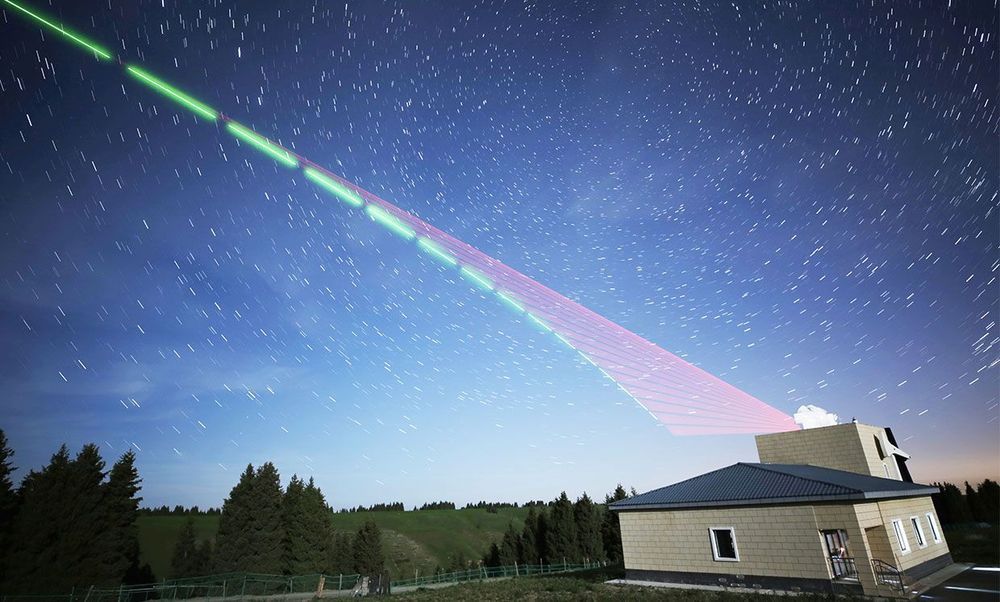
Now, the same researchers have achieved their goal of entanglement-based quantum cryptography using the Micius satellite. The scientists, who detailed their findings online in the 15 June edition of the journal Nature, say they again connected two observatories separated by 1,120 kilometers. But this time, the collection efficiency of the links was improved by up to four-fold, which resulted in data rates of about 0.12 bits per second.
A space-based, virtually unhackable quantum Internet may be one step closer to reality due to satellite experiments that linked ground stations more than 1,000 kilometers apart, a new study finds.
Quantum physics makes a strange effect known as entanglement possible. Essentially, two or more particles such as photons that get linked or “entangled” can influence each other simultaneously no matter how far apart they are.
Entanglement is an essential factor in the operations of quantum computers, the networks that would connect them, and the most sophisticated kinds of quantum cryptography, a theoretically unhackable means of securing information exchange.
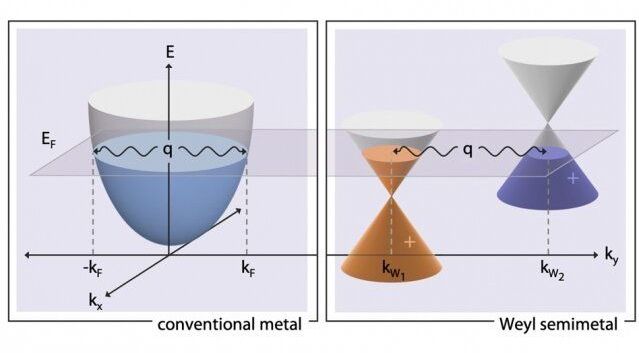
An exotic physical phenomenon known as a Kohn anomaly has been found for the first time in an unexpected type of material by researchers at MIT and elsewhere. They say the finding could provide new insights into certain fundamental processes that help determine why metals and other materials display the complex electronic properties that underlie much of today’s technology.
The way electrons interact with phonons—which are essentially vibrations passing through a crystalline material —determines the physical processes that take place inside many electronic devices. These interactions affect the way metals resist electric current, the temperature at which some materials suddenly become superconductors, and the very low temperature requirements for quantum computers, among many other processes.
But electron-phonon interactions have been difficult to study in detail because they are generally very weak. The new study has found a new, stronger kind of unusual electron-phonon interaction: The researchers induced a Kohn anomaly, which was previously thought to exist only in metals, in an exotic material called a topological Weyl semimetal. The finding could help shed light on important aspects of the complex interplay between electrons and phonons, they say.
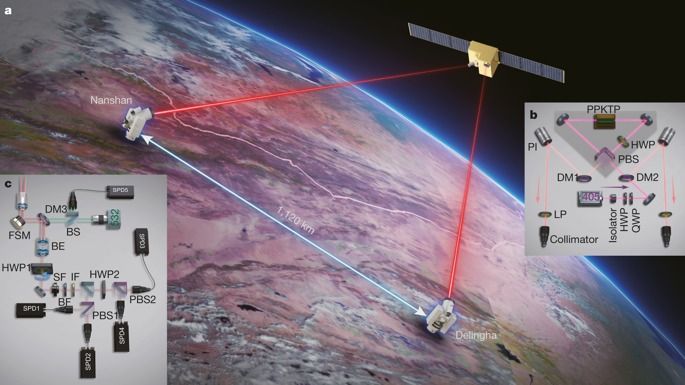
Quantum key distribution (QKD)1,2,3 is a theoretically secure way of sharing secret keys between remote users. It has been demonstrated in a laboratory over a coiled optical fibre up to 404 kilometres long4,5,6,7. In the field, point-to-point QKD has been achieved from a satellite to a ground station up to 1,200 kilometres away8,9,10. However, real-world QKD-based cryptography targets physically separated users on the Earth, for which the maximum distance has been about 100 kilometres11,12. The use of trusted relays can extend these distances from across a typical metropolitan area13,14,15,16 to intercity17 and even intercontinental distances18. However, relays pose security risks, which can be avoided by using entanglement-based QKD, which has inherent source-independent security19,20. Long-distance entanglement distribution can be realized using quantum repeaters21, but the related technology is still immature for practical implementations22. The obvious alternative for extending the range of quantum communication without compromising its security is satellite-based QKD, but so far satellite-based entanglement distribution has not been efficient23 enough to support QKD. Here we demonstrate entanglement-based QKD between two ground stations separated by 1,120 kilometres at a finite secret-key rate of 0.12 bits per second, without the need for trusted relays. Entangled photon pairs were distributed via two bidirectional downlinks from the Micius satellite to two ground observatories in Delingha and Nanshan in China. The development of a high-efficiency telescope and follow-up optics crucially improved the link efficiency. The generated keys are secure for realistic devices, because our ground receivers were carefully designed to guarantee fair sampling and immunity to all known side channels24,25. Our method not only increases the secure distance on the ground tenfold but also increases the practical security of QKD to an unprecedented level.
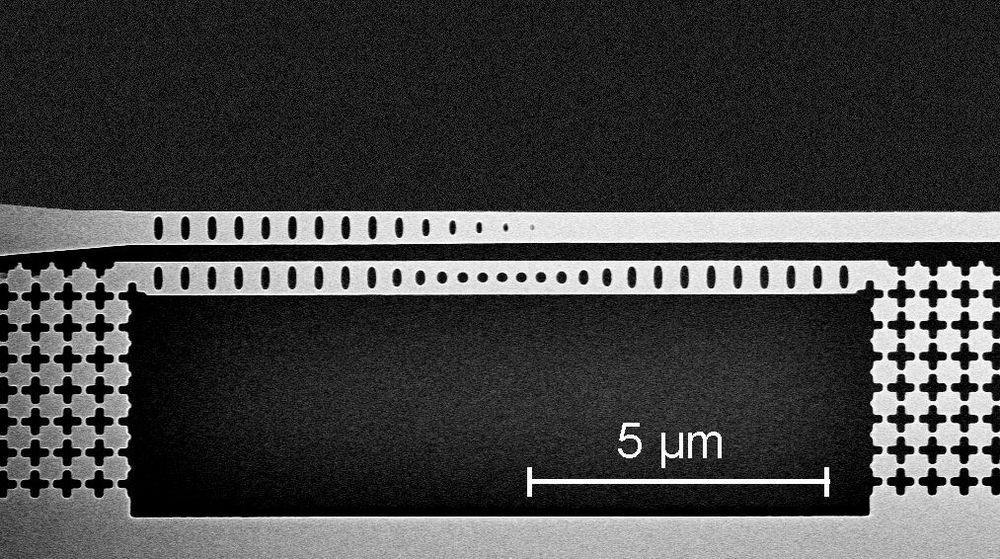
To create large quantum networks, researchers will first need to develop efficient quantum repeaters. A key component of these repeaters are quantum memories, which are the quantum-mechanical equivalents of more conventional computer memories, such as random-access memories (RAM).
Ideally, a quantum memory should be able to retain information for substantial periods of time, store true quantum states, read out data efficiently and operate at low-loss telecommunication wavelengths. While research teams have made great progress in the development of quantum memories, no solution proposed so far has been able to meet all of these requirements simultaneously.
With this in mind, researchers at Delft University of Technology (TU Delft) set out to develop a new mechanical quantum memory with sufficiently long storage times, a high readout efficiency, and the ability to operate at telecom wavelengths. The memory they devised, presented in a paper published in Nature Physics, could ultimately enable the practical implementation of mechanical systems with quantum effects developed in their previous works.
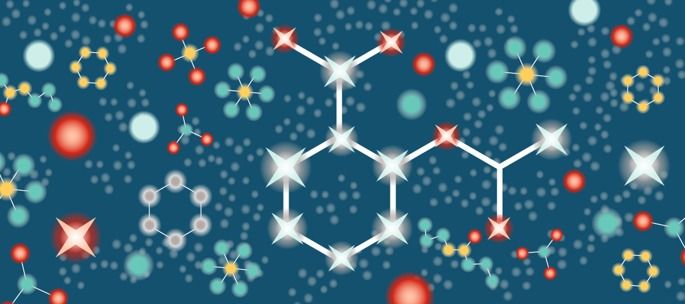
Rational design of compounds with specific properties requires understanding and fast evaluation of molecular properties throughout chemical compound space — the huge set of all potentially stable molecules. Recent advances in combining quantum-mechanical calculations with machine learning provide powerful tools for exploring wide swathes of chemical compound space. We present our perspective on this exciting and quickly developing field by discussing key advances in the development and applications of quantum-mechanics-based machine-learning methods to diverse compounds and properties, and outlining the challenges ahead. We argue that significant progress in the exploration and understanding of chemical compound space can be made through a systematic combination of rigorous physical theories, comprehensive synthetic data sets of microscopic and macroscopic properties, and modern machine-learning methods that account for physical and chemical knowledge.
Fascinating talk on a fun topic.
How does quantum logic differ from classical logic? How do we live in a universe that accommodates both?
Is it possible to observe quantum logic at work in our macroscopic world?
Surprisingly a little bit of quantum logic can disentangle some of our clumsy everyday conceptualisations of biology, language and culture.
Slides / Prezi: https://prezi.com/sellcdridu0v/quantum-logic-the-rise-of-the-memes-2019
Speaker: Chris Guest — President of Vic Skeptics
Meetup Link: https://www.meetup.com/Science-Technology-and-the-Future/events/263849500
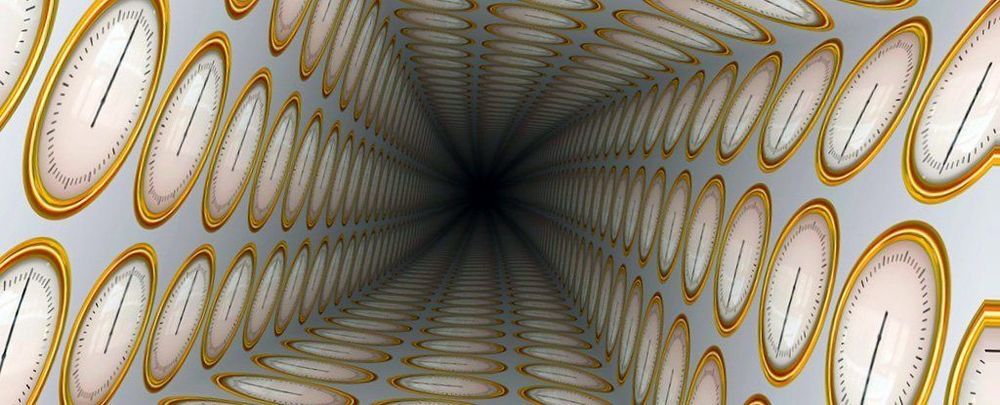
It’s easy to take time’s arrow for granted — but the gears of physics actually work just as smoothly in reverse. Maybe that time machine is possible after all?
An experiment from 2019 shows just how much wiggle room we can expect when it comes to distinguishing the past from the future, at least on a quantum scale. It might not allow us to relive the 1960s, but it could help us better understand why not.
Researchers from Russia and the US teamed up to find a way to break, or at least bend, one of physics’ most fundamental laws of energy.